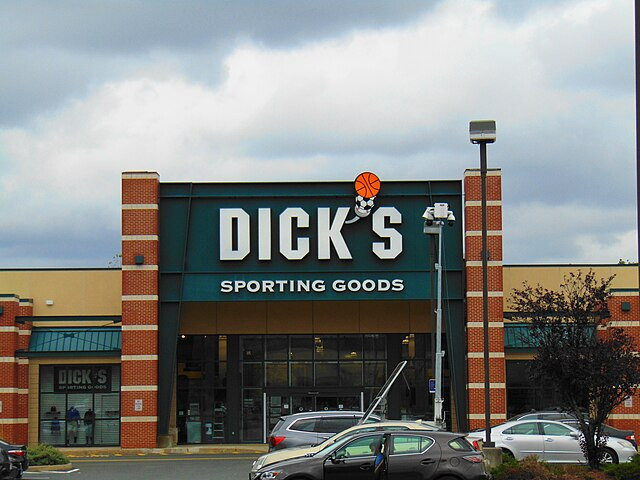Dick's Sporting Goods announced Thursday it will acquire longtime rival Foot Locker in a $2.4 billion deal aimed at strengthening its position in the global athletic footwear market and consolidating its hold on Nike product distribution. The transaction, expected to close in the second half of the year, comes as both companies face rising competitive and macroeconomic pressures, including mounting tariff concerns and shifts in consumer spending.
Under terms of the agreement, Foot Locker shareholders will receive either $24 in cash per share-a 66% premium over the retailer's 60-day average-or 0.1168 shares of Dick's stock. Foot Locker shares surged more than 80% following the announcement, while Dick's stock dropped approximately 10% as investors weighed the potential risks.
"By joining forces with DICK'S, Foot Locker will be even better positioned to expand sneaker culture, elevate the omnichannel experience for our customers and brand partners, and enhance our position in the industry," said Foot Locker CEO Mary Dillon
Dick's CEO Lauren Hobart added, "We'll create a new global platform that serves those ever evolving needs through iconic concepts consumers know and love, enhanced store designs and omnichannel experiences."
The move will give Dick's access to Foot Locker's 2,400 retail stores across 20 countries, marking its first direct entry into international markets. It also diversifies Dick's customer base, which is traditionally more affluent and suburban, by bringing in Foot Locker's younger, urban demographic.
Nike, which relies heavily on wholesale partners for distribution, currently works with both Dick's and Foot Locker. A merger of the two would allow Dick's to consolidate purchasing power and secure a larger share of Nike's wholesale supply. Combined, the companies generated over $21 billion in annual revenue-$13.4 billion from Dick's and $8 billion from Foot Locker.
Despite optimism from both companies, the deal has drawn skepticism on Wall Street. TD Cowen analyst John Kernan downgraded Dick's stock to "hold," calling the acquisition a "strategic mistake." Kernan wrote, "There is little to no precedence of M&A at scale creating value for shareholders within Softlines Retail... We expect low returns and rising balance sheet risk."
Dick's said it expects the deal to be accretive to earnings in the first full fiscal year post-close and to generate $100 million to $125 million in cost synergies. However, Foot Locker's recent performance suggests a challenging path ahead. The company reported a 2.6% drop in comparable sales for the first quarter and forecast a net loss of $363 million, including $276 million in trademark and goodwill impairments.
Meanwhile, Dick's posted a 4.5% increase in same-store sales and earnings of $3.24 per share. "We are very pleased with our strong start to the year and our demonstrated sustained growth," Hobart said. "The strength of our business puts us in a great position for our proposed acquisition of Foot Locker."
The proposed deal follows a broader trend of consolidation in the footwear sector. Earlier this month, Skechers agreed to be taken private by 3G Capital in a $9 billion transaction. Retailers are bracing for further margin compression amid President Donald Trump's ongoing trade war, which has threatened to increase costs for U.S. companies importing goods from Asia, where the vast majority of footwear is manufactured.




